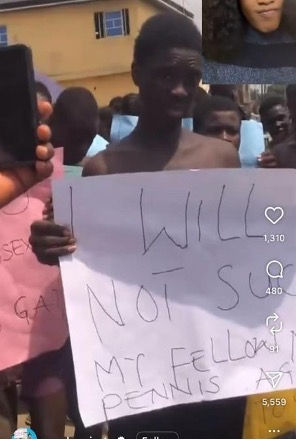THE UNTAPPED RESOURCES WE SHOULD BE MAXIMIZING
- INNOCENT DORIS UZOAMAKA

- Feb 2, 2021
- 3 min read
The severity of one’s disability does not determine their level of potential. The greatest barriers that persons with disabilities have to overcome are not steps or curbs, it’s expectations – Karen Clay
Persons with disabilities in Nigeria persistently face stigma, discrimination, and barriers to accessing basic social services and economic opportunities. Today, they face greater barriers brought about by the impacts of the COVID-19 pandemic.
According to the World Health Organization’s 2011 World Disability Report, about 15 percent of Nigeria’s population, or at least 25 million people, have a disability.
Unemployment rates among persons with disabilities are almost double that of the general population, owing to attitudinal, mobility-related, technological, and physical barriers (lack of accessible workplaces). Assistive devices are expensive and not easily available, which limits the mobility and access to technology for persons with disabilities. In addition, many will experience frequent denial of job opportunities, employers’ negatives attitudes, inappropriate job placement, lower expectations at work, and a lack of reasonable accommodation.
These challenges among others compound the vulnerability of persons with disabilities, and especially during COVID-19. A distinct absence of data pertaining to disability prevalence and the different forms of disabilities persists in Nigeria, which in turn challenges effective policy responses and data driven programming.
Many World Changers today are Persons with Disabilities who through their various feats have proved to the world that disability is not in the mind. These men and women have gone ahead to set higher standards in their various fields through the feats they accomplished. Some of these men and women include; Stephen Hawking, Helen Keller, Walt Disney, Maya Angelou, Nicholas James Vujicic and our very own Cobhams Asuquo.
On the 18th of May, 2020 in the heart of the COVID -19 pandemic, Lawyers Alert found a large crowd of persons staged around the Deputy Governor’ Office’ entrance, and upon enquiry found out that they were members of the Benue State Association of the Deaf.
Lawyers Alert (LA) invited representatives of the association to our first meeting, a conversation that was purely inscription based. The Chairperson of the Association stated that his community members who are scattered across the 23 LGAs are dying from sickness and starvation; most especially because they do not have means of livelihood. Some members of the deaf community are married with children and some of those children’ parents (deaf) are also dead and long buried yet no one is taking responsibility for them.
According to the chairperson and his community, skills acquisition has been their heart cry but the government has completely failed to assist them in any way possible to see that they are economically stable. that since the COVID-19 Pandemic, Government has not made any effort to reach out to their community.
After this meeting, we started the BSAD project in partnership with House of Hilkiah Foundation (HOHF) with the goal of providing entrepreneurship trainings for 20 members of the community as well as carry out other activities on our work plan which we developed in conjunction with the community. During this period, we discovered one of them who is an amazing artist who needs a good platform to showcase his work, which further corroborates the fact that disability does not affect the potentials or dreams of anybody.
It is important that government officials, policymakers, decision makers and Civil Society Organisations are aware of the importance of disability as a development issue and enhance data collection on disability. A concerted effort to raise awareness surrounding disability issues would serve to shift negative perceptions and stigma against persons with disabilities among families and communities.
In order to forge a disability-inclusive recovery from COVID-19, support for existing disability inclusion legislation in Nigeria is imperative. This means promoting the implementation of the Discrimination Against Persons with Disabilities (Prohibition) Act 2018 and strengthening the institutional landscape for disability inclusion through the Disability Commission. A woman with a physical disability from Abuja captures the issue well – “Persons with disabilities should not relax and think ‘we now have a law, everything you need will fall into place.’ No, we must continue to work, to advocate for implementation.”
Furthermore, investments in inclusive employment and livelihood interventions are critical to addressing unemployment challenges among persons with disabilities. These could include entrepreneurship training and business advisory services, as well as the promotion of locally produced assistive devices and accessible workplaces. Disability-focused organizations in Nigeria should be empowered to support this process and provide services to persons with disabilities and caregivers[1].








Comments